Lately, the word “fresh” has been tossed around like a house salad; the latest in a series of over-used accolades employed to describe the awesome, hot, cool, and incredibly gifted among us.
Overused though it may be, when it comes to Will Wilde and his music, fresh is the perfect adjective. No same old, same old here. From the tuning of his harp, to the constantly evolving sound of his music, Will is wild. Crazy good. Fresh.
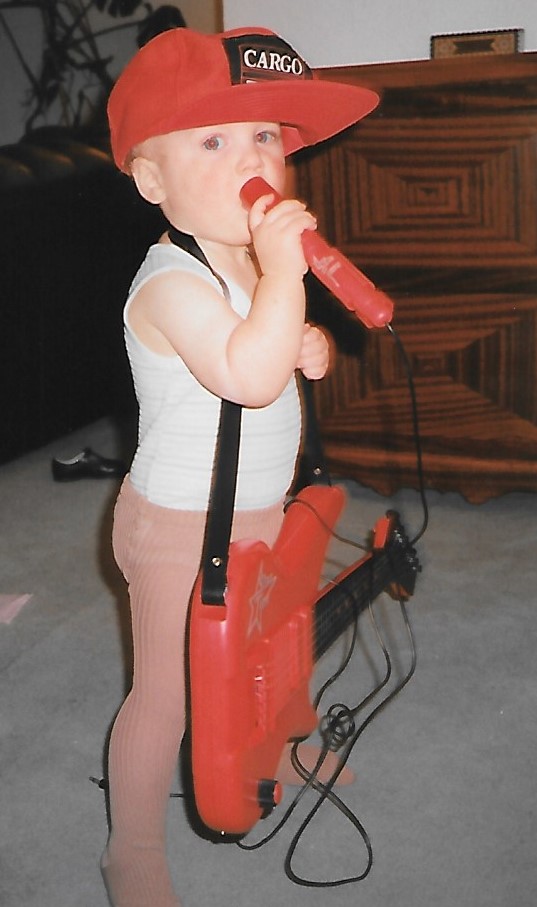
Born in Macclesfield, England, Wilde was raised in Wiltshire, in what he describes as “a small village in the middle of nowhere; a one-shop, one-post-office town in southwest England.” And yet, despite its geographically-imposed limitations, music found him, took hold of him, and never let go.
“My dad is a big music fan”, he says. “He doesn’t play anything but he’s a fan of blues music in particular. So, I grew up hearing blues around the house, and got taken to a lot of gigs and festivals.”
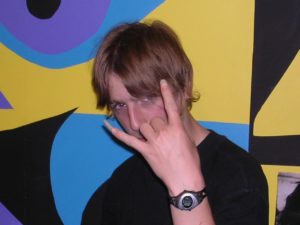
As a teenager, Will spent a good bit of time listening to Marilyn Manson, Rage Against the Machine and Australia’s Silverchair, with his tastes veering heavily into the metal and punk lane. It was during this time that he played drums with a group of like-minded mates.
When high school was over, the band disbanded. “The other guys went their separate ways to universities, or got proper jobs,” he says, laughing, prompting Will to follow his sister Dani’s lead, and apply to the Brighton Institute of Modern Music, where she was studying voice and guitar.
Will auditioned for and earned a spot as a drum major, but by the time he arrived in Brighton, his focus had changed, thanks to a chance encounter with a plastic harmonica left on a kitchen counter at a house party.
“I think it had come free with a six-pack of Guinness,” he says, as it was more of a toy than an instrument: a plastic marine band wannabe, still wrapped in its plastic wrapper. Yet and still, it caught his attention.
“I’d always liked the sound of blues harmonica,” he says, “particularly Sonny Boy Williamson and Help Me. So, I picked it up – never thinking that I’d get good on it, or that I’d take it seriously. I just thought I could use it as a party trick to impress people.”
But it wasn’t long after toying with it that the teenager got himself a real harmonica and put in some hard time seeing what it – and he – could do.
No longer interested in drums, Will admits that he spent most of his free time at BIMM in his bedroom playing harmonica. “I still completed the course,” he says, “but I never played drums in a band again.”
At least not on a regular basis.
After graduation, Will found himself with a good bit of time on his hands. “I was unemployed for a year,” he says, “but it was during that year that I learned about the harmonica, because I didn’t have a job or anywhere I had to be. And so I just stayed in my room and played along to Muddy Waters records for 10 to 12 hours at a time.”
When Wilde wasn’t actually playing the harp, he was thinking about it. “I would practice in my head,” he recalls. “I knew the layout of the notes, and so I learned a new style without having to pick the harmonica up.”
Meanwhile, sister Dani was off and running, have signed with Germany’s Ruf Records. Will had played on the demo that prompted the signing, and when her career took off, Will and his harp toured with her as part of the band. “I was 19,” he says, “and that was the first proper touring that I was in, and it felt really good.
“I was just thankful that I had the opportunity to be in front of people. That was all I wanted to do at the time.”
But as his confidence grew, so did his ambitions. When the opportunity appeared to make an album of his own, he seized it.
“I recorded my first studio album in 2010. I had a lot of stuff I’d been writing, and we had just recorded Shine, Dani’s second album. And so I basically asked the session players on her records if they would do a record with me as well. And they all agreed, actually. So, I went and did it in the same studio, using the same players.”
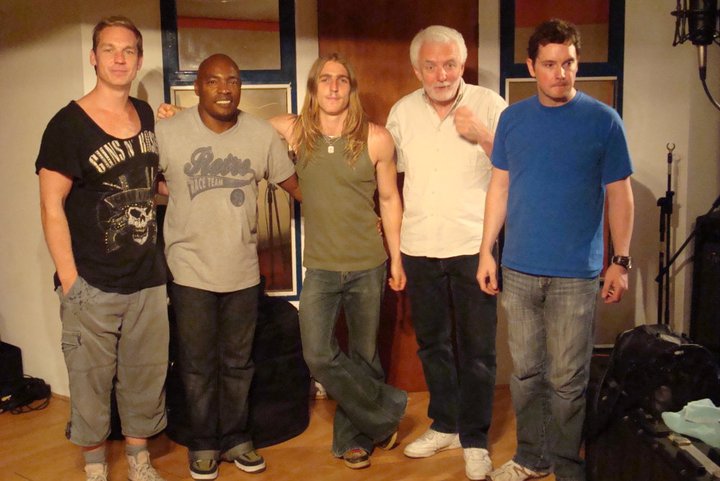
The resulting album, Unleashed, was what he describes as “an eclectic mix of blues, rock, soul and funk.”
A tour with his own band followed, and for a while he was juggling touring schedules, touring with sister Dani’s band as well. “Eventually,” he says, “as my band got busier, I left Dani’s band to pursue my own thing.”
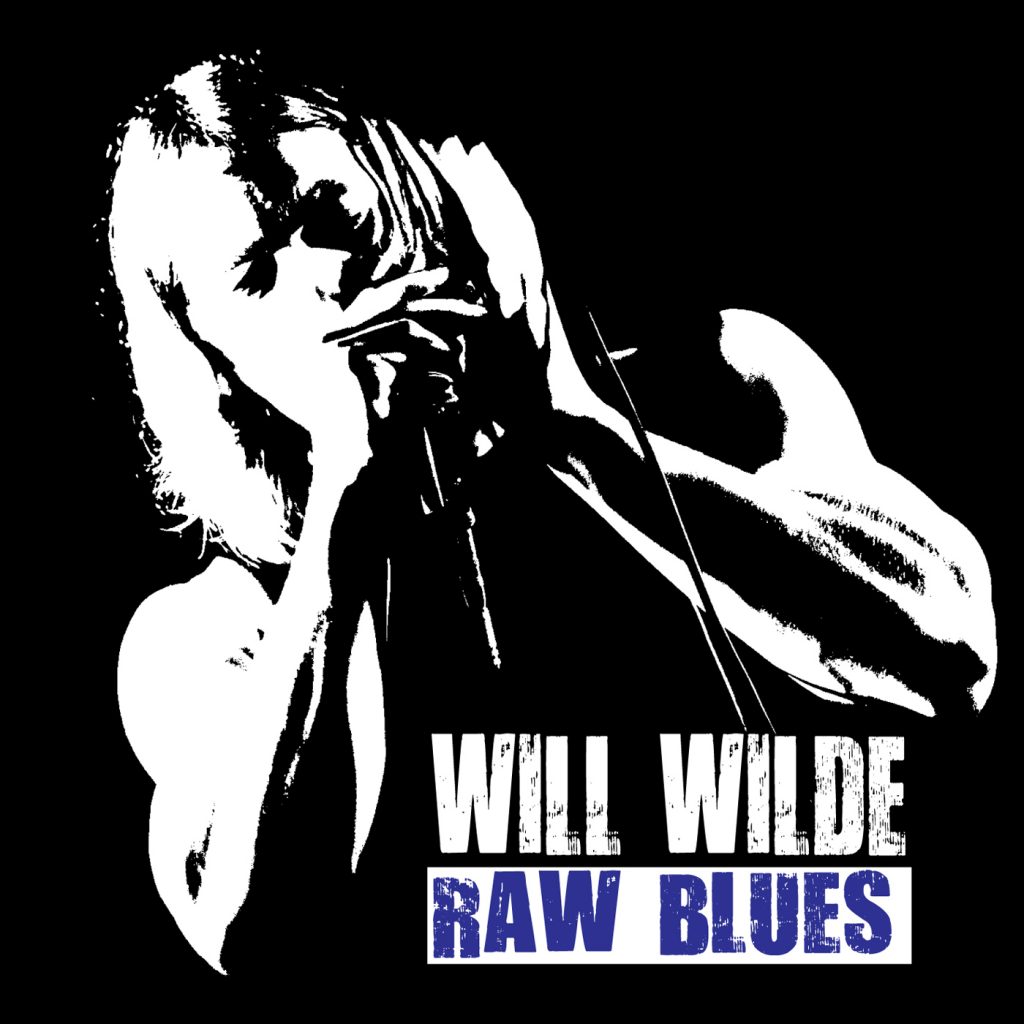
That “thing” included a second album, Raw Blues, in 2013, which he describes as “a straight up blues record.” And while there were a couple of covers, the bulk of the album’s tunes were written by the man himself.
Will says that, with the release of the album, he had said everything he had to say within the constraints of the blues songwriting formula, prompting him to take his music in a new direction.
“I started experimenting with more effects,” he says. “My style of playing had developed slowly over the course of a few years, and I was interested to see what I could do with it. And I got the idea of making a rock record where harmonica was the main leading instrument instead of the guitar.”
How did his fan base react? “Pretty good,” he says, with a pause, and then, “very good actually. The more rock I’ve done, the better response I’ve had.
“The turning point was probably about a year ago, when I released a music video where I played Parisienne Walkways. I felt that was where I found my new sound. Even though it’s a cover, it’s not a cover you’d expect a harmonica player to do, because I’m playing Gary Moore’s rock guitar melodies.”
The response to the above video told Wilde that he was going in the right direction, and that, as Will says, “People understood what I was doing.”
“I decided to start looking for other blues rock tunes with some guitar lines that would translate well to the harmonica. There were a few songs that came to mind straight-away, like Bad Penny by Rory Gallagher. I had to do some digging and listen to a lot of old records for other songs and decide what to do.”
Does Will have a favorite cut on the album? He says that if he has to pick one, it would probably be his rendition of Deep Purple’s Lazy. “I really liked Richie Blackmore’s guitar lines,” he says, “and the way they work on the harmonica.”
One thing is certain, Will Wilde is not lazy. His calendar is as full as his sound. He is the total package, an innovative musician who isn’t afraid to take chances, blowing the lid off canned phrasing and tired licks and tricks.
We asked Wilde if he was more comfortable playing rock than blues. The answer: “Not necessarily. I feel more myself playing rock at the moment, because pretty much every harmonica player plays the blues, and it’s difficult to have your own unique sound and style when you’re playing the same music as everyone else. And so I’m more interested in playing the rock stuff at the moment. I find it more inspiring.”
“At the moment” is a telling phase, encapsulating Wilde’s outlook and determination to explore, challenge, grow, and create something new, something that is all his own. Something… fresh.
What is his favorite part of the process? Being on tour, he says, “definitely being on tour and being in the studio, creating new music. That’s where the real creative stuff happens.”
And Wilde works hard at it. He’s the first one to tell you that, despite the fact that he’s what might be described as buff, touring can be tiring. And daily workouts, challenging.
“I try and work out in the hotel room,” he says, “but it’s very tiring being on the road.” A recent three-week tour of the Czech Republic had the band doing a hefty fifteen gigs, with only three days off. “So, it’s quite intense,” he says of the touring process. “We put in a lot of miles on the road as well – sitting in the van. But it’s part of the job, so you can’t complain.”
Gratefully, the rewards far outweigh the occasional bump along the way. “Once, we were supposed to do a show in Warsaw,” he recalls. “We drove from somewhere in Germany to get there.” But when they got there, the promoter was nowhere to be found; in fact, the only person associated with the gig was a lone sound technician.
“And so there was no one to pay us, or take money at the door,” he says, adding with more than a bit of irony, “but no one showed up anyway because it hadn’t been promoted. It was bizarre. And so we put our stuff back in the van and went on to the next gig.”
Outside of that one incident, “and ‘a couple of times when we had to get towed back to England from Germany when the van broke down,” things have been moving pretty smoothly and swiftly, with Will somehow finding time in between tours to devote to writing, recording and teaching.
Thanks to the Internet, Wilde has built up an international base of students, whom he tutors over Skype. He’s also involved in teaching formal classes as well as at various harmonica workshop events and festivals, from the Edinburgh Harmonica Festival to the London Harmonica Camp, and Euro Blues workshop weekends. It’s a full roster.
So just how does Will do the things he does – execute that high-end draw bend and achieve that tone? Is it all a matter of tuning? And if so, how so?
“In the standard tuning, you can only bend the draw notes, holes 1-to-6.” he explains. “I prefer draw bends to blow bends because you can get a better tone and a better vibrato from them. And, with my tuning, you can bend all the draw notes from 1 –to-10.”
Here’s Will, demonstrating those high-end draw bends:
“Most of my playing is inspired by guitarists,” says Wilde. “And that’s a big reason why I came up with my new tuning – so that I could play more guitar licks on the harmonica.”
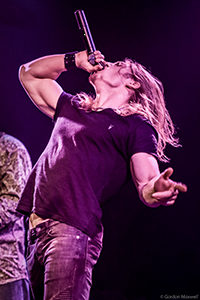
But tuning is only part of what makes Wilde unique. Unlike your favorite fast-food burger, when it comes to making it in the music business, there is no secret sauce. It takes a lot of things, he says, and tuning is just one of them.
“You’ve got to listen to a lot of music – not just harmonica,” he says. “You’ve got to study the greats first and learn all the old school blues stuff from the masters like Sonny Boy Williamson and Little Walter. And then, try and go your own way.”
Will taking his cue from Little Walter and making it his own:
While most harp players never take the stage, playing for the sheer joy of it, some, like Will, take that enthusiasm and passion for the harmonica to another level. And so we asked, beyond talent, which is an obvious given, how important is that indefinable something known as “charisma”? Wilde certainly has the look, and when he’s on stage, he owns it, connecting with the audience and drawing them in.
“I think showmanship is very important,” he says, “and I think that, with the harmonica as opposed to the guitar, it can be more difficult to put over a high energy song. There are a lot of classic guitar poses, but when you’re playing harmonica, you’ve got your hands in front of your face, and it puts a barrier between you and the crowd. So, I use my entire body when playing to embody the sound. And I’m constantly alternating between playing and singing.”
What’s next for Mr. Wilde? A tour of the US, perhaps? “I’d really like that,” he says, “as a large percentage of my fan base is in the States, so I’d really like to get there.”
Something to look forward to.
Meanwhile, Will continues to follow the lead of British rock bands like Led Zeppelin, Deep Purple and Free, testing the limits of the instrument… taking cues from old souls like Sonny boy Williamson, Little Walter and Muddy Waters, and others known for pushing the limits.
He can also be seen sharing the stage with his sister Dani, his own band and others, as well as on youtube.com, and right here at harmonica.com.
There’s a full 1 hour lesson from Will Wilde included with Breakthrough Blues where he walks you through a killer solo, note-by-note.
For more on Will Wilde, his music, upcoming tour dates, and tutoring information go to Willharmonicawilde.com.

Comments
Got something to say? Post a comment below.